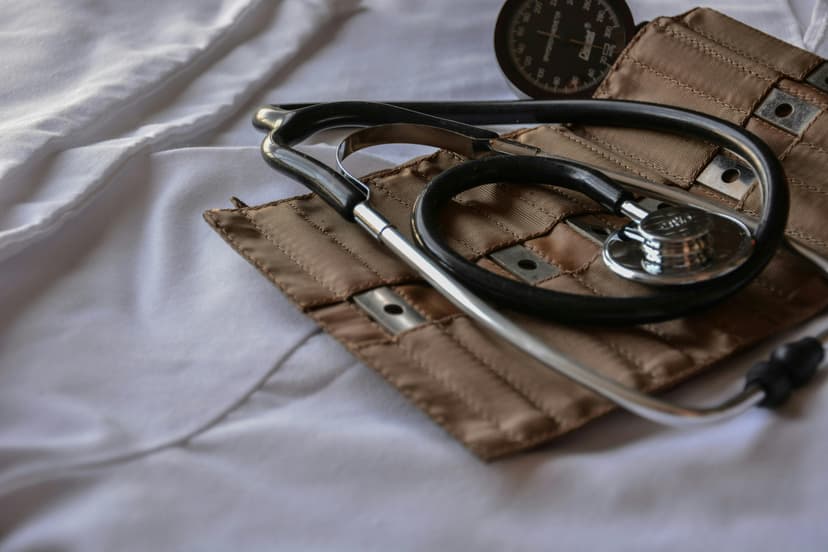Key Questions to Ask During Your Medical School Interview
Preparing for your medical school interview? Don't miss out on these key questions that can help you stand out and impress the admissions committee.
Posted June 13, 2025

Join a free event
Learn from top coaches and industry experts in live, interactive sessions you can join for free.
Table of Contents
Congratulations on being selected for a medical school interview! This is an exciting time, but it can also be nerve-wracking. To put you at ease, we’ve compiled a list of key questions to ask during your medical school interview. By asking these questions, you can gain a better understanding of the school and what it has to offer. Let's dive in.
Preparing for Your Medical School Interview: A Step-by-Step Guide
Before we get to the questions you should be asking, let's first talk about how to prepare for your medical school interview. This is a critical step that will help you put your best foot forward during the interview process.
First, research the school thoroughly. Look up their website, program offerings, and look for any news articles that may provide insight into the school's culture and values.
Next, review your application and familiarize yourself with your experiences and accomplishments. It's essential to have an understanding of your own strengths and weaknesses.
Lastly, practice! Mock interviews with friends or family members can help you get comfortable with the interview format and anticipate commonly asked questions.
Another important aspect of preparing for your medical school interview is to dress appropriately. You want to make a good first impression, so dress professionally and conservatively. Avoid wearing anything too flashy or distracting.
Understanding the Importance of Asking Questions During Medical School Interviews
Now, let's discuss why it's essential to ask questions. The interview process is a two-way street. Both you and the school are trying to determine if you're a good fit. Asking questions demonstrates your interest, enthusiasm, and initiative. It also gives you a chance to see if the school aligns with your goals and values
Moreover, asking questions during medical school interviews can also help you gain a better understanding of the curriculum, teaching methods, and resources available at the school. This information can be crucial in making an informed decision about which medical school to attend. Additionally, asking questions about the school's culture and community can give you insight into the type of environment you'll be studying and working in for the next several years. Overall, asking thoughtful and relevant questions during medical school interviews can help you stand out as a candidate and make an informed decision about your future in medicine.
Top Questions to Ask Admissions Officers During Your Medical School Interview
Now, let's get to the questions that you should be asking. First, ask about the school's mission and how it aligns with your own goals. You should also inquire about the curriculum and opportunities for hands-on learning experiences. Additionally, ask about resources for students, such as tutoring, counseling, and research opportunities.
Another important question to ask is about the school's support for students' mental health and well-being. Medical school can be a stressful and demanding experience, so it's important to know what resources are available to help students cope with the challenges they may face. You can also ask about the school's approach to diversity and inclusion, and how they support students from underrepresented backgrounds. Finally, don't forget to ask about the school's residency match rate and career placement services, to ensure that you'll be well-prepared for your future as a medical professional.
How to Research the Medical School Before Your Interview
As we mentioned earlier, researching the school is essential. How can you do that? Start with the school's website. Look for program offerings, faculty profiles, and any news articles that may provide insight into the school's culture and values.
Another great way to research the medical school is to reach out to current students or alumni. You can connect with them through social media or professional networking sites like LinkedIn. Ask them about their experiences at the school, the curriculum, and any unique opportunities the school offers. This can give you a better understanding of what it's like to be a student at the school and help you determine if it's the right fit for you.
Tips for Building Confidence Ahead of Your Medical School Interview
Confidence is essential during the interview process. Start by reviewing your application, practicing your answers to commonly asked questions, and getting adequate sleep before the interview. Dress appropriately and arrive early to allow time to get settled and focused.
In addition to these tips, it can be helpful to do some research on the medical school and the program you are applying to. This can give you a better understanding of the school's values and mission, and help you tailor your answers to align with them. It's also important to remember that the interview is not just about your qualifications, but also about your personality and fit with the school. So, be sure to showcase your unique qualities and experiences that make you a good fit for the program.
Ways to Show Your Passion for Medicine During the Interview Process
Showing your passion for medicine is essential during the interview process. You can do this by discussing your unique perspective, experiences, and interests related to medicine. Articulate clearly why you want to become a doctor, and provide specific and relevant examples.
Another way to demonstrate your passion for medicine during the interview process is to discuss your involvement in medical-related extracurricular activities. This could include volunteering at a hospital or clinic, participating in medical research, or joining a pre-medical club. Highlighting your dedication to these activities shows that you have a genuine interest in the field beyond just academic pursuits.
Additionally, it's important to show that you have a strong understanding of the challenges and rewards of a career in medicine. Discussing the current state of healthcare, the importance of empathy and communication in patient care, and the need for ongoing education and professional development can all demonstrate your knowledge and commitment to the field.
Common Mistakes to Avoid During Your Medical School Interview
One common mistake is not preparing appropriately. You want to make sure that you're familiar with your application, the school, and have practiced common interview questions. Another mistake is not asking questions during the interview. Remember, it's a conversation, not a quiz.
Another common mistake is not dressing appropriately for the interview. You want to make sure that you dress professionally and conservatively. Avoid wearing anything too flashy or distracting. Your appearance should reflect your seriousness and professionalism towards the interview process.
How to Handle Tough Questions During Your Medical School Interview
The best way to handle tough questions is to take a moment and gather your thoughts. It's okay to acknowledge that it's a difficult question and ask for clarification or a moment to think before answering. Be honest, truthful, and sincere, and remember that the interviewer wants to see how you handle challenging situations.
Another important tip is to stay calm and composed during the interview. Take deep breaths and maintain eye contact with the interviewer. This will help you to stay focused and confident, even when faced with tough questions.
It's also a good idea to practice answering common interview questions beforehand. This will help you to feel more prepared and confident during the actual interview. You can ask a friend or family member to help you practice, or even record yourself answering questions and review your performance.
The Role of Body Language in a Successful Medical School Interview
Body language plays a crucial role in the interview process. Sit up straight, make eye contact, and demonstrate active listening by nodding your head and responding appropriately. Avoid fidgeting or tapping, as this can be distracting or come across as nervousness.
In addition to these basic body language tips, it's important to also pay attention to your facial expressions. Smiling and showing enthusiasm can convey confidence and a positive attitude. On the other hand, a blank or uninterested expression can give the impression that you are not engaged or passionate about the field of medicine. Remember to also use hand gestures sparingly and purposefully, as excessive or inappropriate hand movements can be distracting or even offensive.
What to Expect During a Group Interview for Medical School
During a group interview, it's important to remember to listen actively and interact with your fellow interviewees. Be respectful and professional, and don't be afraid to contribute to the conversation. Also, remember that the interviewers want to see how you interact with others.
Another important aspect of a group interview for medical school is to be prepared to answer questions about teamwork and collaboration. Medical professionals often work in teams, so it's important to demonstrate your ability to work well with others. You can prepare for this by reflecting on past experiences where you worked in a team and highlighting your contributions.
Additionally, group interviews may include role-playing scenarios where you are asked to work with other interviewees to solve a problem or complete a task. It's important to stay calm and focused during these exercises, and to communicate effectively with your group members. Remember to listen actively, ask questions, and contribute your ideas in a respectful and collaborative manner.
How to Follow Up After Your Medical School Interview
Follow up after your interview with a thank-you note. This is a great way to reiterate your interest in the program, acknowledge the interviewer's time, and express your gratitude for the opportunity.
Another way to follow up after your medical school interview is to send an email to the interviewer. In the email, you can thank them for their time and express your continued interest in the program. You can also use this opportunity to ask any follow-up questions you may have or provide additional information that you may have forgotten to mention during the interview.
It's important to remember that following up after your interview shows your professionalism and dedication to the program. However, it's also important to not overdo it. Sending multiple emails or making multiple phone calls can come across as pushy and may harm your chances of being accepted into the program. One or two follow-up messages are sufficient to show your interest and gratitude.
Preparing for Multiple Mini Interviews (MMIs) in Medical Schools
MMIs are a series of short interviews that assess specific qualities such as communication skills, empathy, and problem-solving abilities. To prepare, practice situational questions and focus on staying calm and concise during the interview.
Best Practices for Virtual Medical School Interviews in 2021
Due to the pandemic, virtual interviews are becoming more common. To prepare, ensure that you have a reliable and stable internet connection, dress professionally, and test your audio and video equipment beforehand.
In Conclusion
By asking these key questions and adequately preparing for your medical school interview, you can maximize your chances of success. Don't forget to show your passion for medicine, be professional, and follow up with a thank-you note. Good luck!
Browse hundreds of expert coaches
Leland coaches have helped thousands of people achieve their goals. A dedicated mentor can make all the difference.

















